Google held its annual “Made By Google” hardware event this morning in New York City, where they launched all sorts of new gear back to back to back.
Didn’t have time to watch the whole stream, but still want to know the bulletpoints of what’s new? We’ve got you covered.
Stadia Launch

Stadia, Google’s cloud video game streaming service, will launch on November 19th.
Pixel Buds

Google went back to the drawing board with its answer to the AirPods. Shipping sometime in “Spring 2020”, the new Pixel Buds will cost $179. Google says the battery should last about 5 hours per charge, with the familiar floss-style charging case packing an additional 24 hours worth of charge. On-board microphones will adapt the sound based on your environment, and help to cancel out background noise like wind.
Pixelbook Go
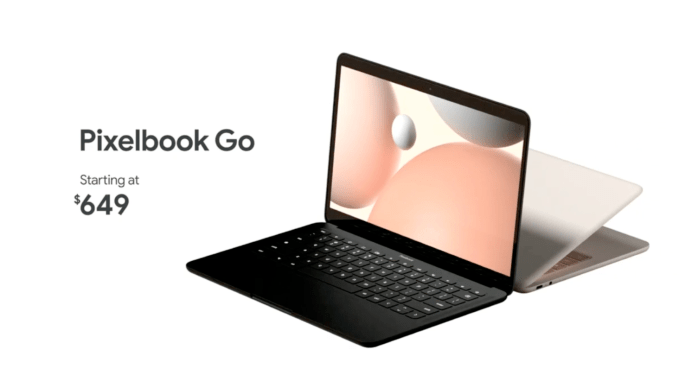
It’s been a while since Google shipped a higher-end Chrome OS laptop — but with Pixelbook Go, they’re taking another swing at it. It’s got a 13.3″ display, up to 16GB of RAM, up to 256GB of storage, with the company promising around 12 hours of battery life. It’ll weigh roughly 2lbs, with a base model that’ll cost $649.
New Nest Aware
Nest Aware (which lets you add cloud recording to your Nest cameras) used to cost a few bucks per device. Now it’s a flat fee, regardless of how many cameras you’ve got. $6 per month gets you 30 days of “event” history (read: just the bits of video where things are actually happening), while $12 per month gets you 10 days of 24/7 video history.
Nest Aware also now lets you put your Nest Minis/Nest Hubs into a security-centric listening mode, with the smart speakers listening for things like smoke alarms and dogs barking and sending you notifications accordingly.
They’ll switch to the new tier structure in “early 2020”.
Nest WiFi
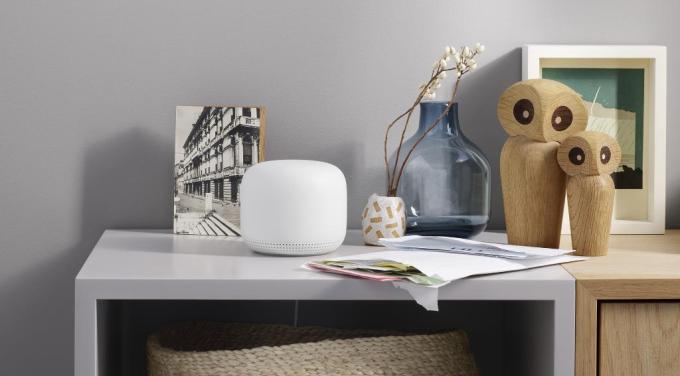
As rumored over the past few weeks, Google is mashing up the concepts of its Google Wifi mesh router with its Google Home speakers, voltroning them into Nest WiFi — a router/smart speaker hybrid. They’ll ship starting on November 4th; a two pack will cost $269, with a three pack going for $349.
New Nest Mini
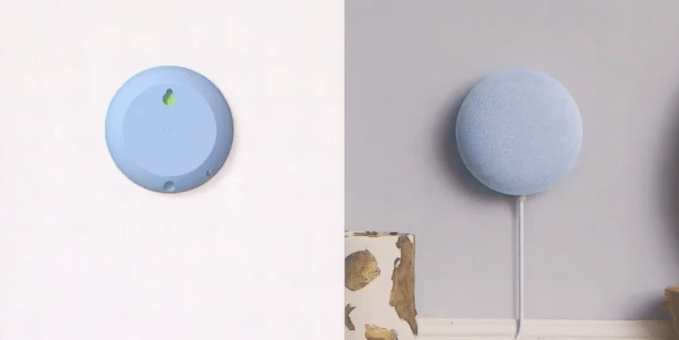
The Google Home Mini is now the “Nest Mini” — and a bit has changed beyond the name. It’s now wall mountable without any adapters, with a speaker that Google says offers up double the bass. Its got a new machine learning chip on board for faster responses, and more microphones to work better in louder environments. It’ll ship on October 22nd for $49.
Pixel 4

After an endless series of leaks, the next generation of Pixel — Google’s flagship Android phone — is officially official. The Pixel 4 will come in at 5.7″ with a 2,800mAh battery, while the Pixel XL 4 comes in at 6.3″ with a 3,700mAh battery. They’re both running on the Snapdragon 855 chipset with 6GB of RAM. They’ve both got “Project Soli” radar chips inside, allowing you to do things like switch songs, snooze alarms, or silence calls by waving your hand over the phone without actually touching it.
The main focus here for Google is the cameras, with the company leaning hard into the idea of using machine-learning and AI-centric software to improve photos — things like dual exposure controls, AI-driven “learning” white balance, and an improved Night Sight mode that can handle taking photos of star-lit nights. Both phones have two cameras on the back (12.2 megapixel f/1.7 main camera and a 16 megapixel f/2.4 telephoto lens) and one on the front (8 megapixels).
It’ll ship starting October 24th, starting at $799.

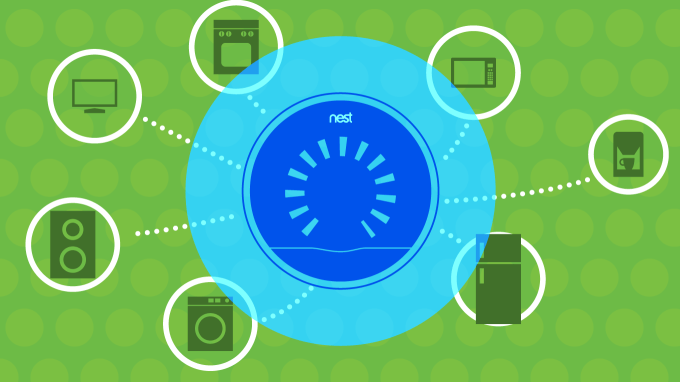 Smart home gadget maker Nest is looking for someone to lead what they are calling Nest Audio, fueling speculation that they are moving into speakers and other audio products. The company declined to comment on the new division or job listing.
Smart home gadget maker Nest is looking for someone to lead what they are calling Nest Audio, fueling speculation that they are moving into speakers and other audio products. The company declined to comment on the new division or job listing. 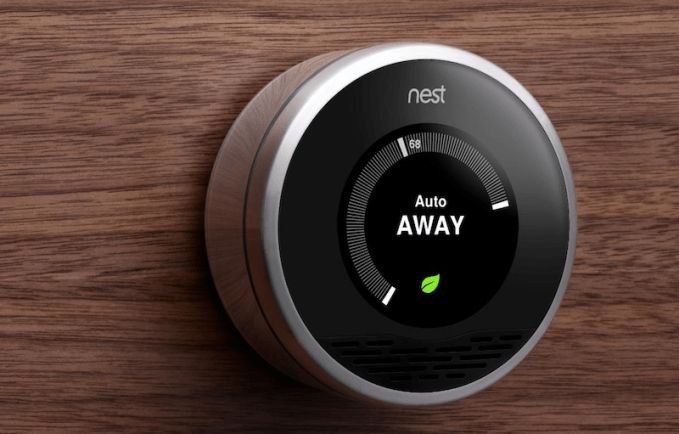 Google-subsidiary Nest claims that the results of three studies based on longitudinal data show that its thermostat pays for itself in less than two years based on savings from heating and cooling costs.
Google-subsidiary Nest claims that the results of three studies based on longitudinal data show that its thermostat pays for itself in less than two years based on savings from heating and cooling costs.  Nest, the connected home company acquired by Google last year, made the news yesterday with the departure of two of its key executives: founding VP of technology Yoky Matsuoka and the Greg Duffy, who had come to Nest as the CEO of acquired company Dropcam. In the wake of that, we’ve been passed (anonymously) two different memos from Nest co-founders Tony Fadell and Matt Rogers,…
Nest, the connected home company acquired by Google last year, made the news yesterday with the departure of two of its key executives: founding VP of technology Yoky Matsuoka and the Greg Duffy, who had come to Nest as the CEO of acquired company Dropcam. In the wake of that, we’ve been passed (anonymously) two different memos from Nest co-founders Tony Fadell and Matt Rogers,… 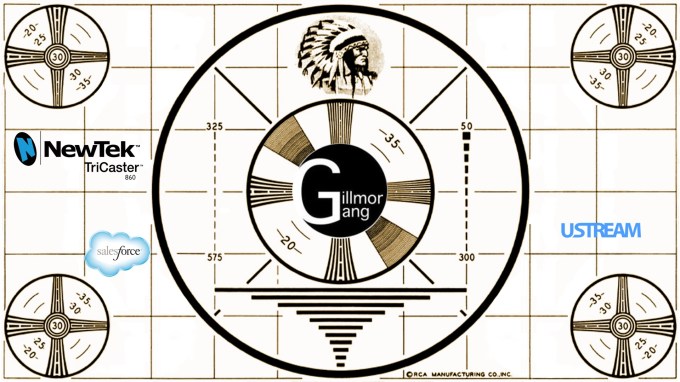 The Gillmor Gang — Dan Farber, John Taschek, Kevin Marks, Keith Teare, and Steve Gillmor. Topics include the Nesting of Google Glass, Neil Young’s Pono and mixing to the car radio, why Selma got shortchange in the Oscar nominations, Facebook @ Work or not, and some tough notification talk to wind it up. If you miss Scobleizer, watch him join our sister show G3.
The Gillmor Gang — Dan Farber, John Taschek, Kevin Marks, Keith Teare, and Steve Gillmor. Topics include the Nesting of Google Glass, Neil Young’s Pono and mixing to the car radio, why Selma got shortchange in the Oscar nominations, Facebook @ Work or not, and some tough notification talk to wind it up. If you miss Scobleizer, watch him join our sister show G3.  Nest is today announcing significant new partners to its “Works with Nest” developer program. The new additions continues Nest’s quest to turn its product into the heart of a smart home. Among the new partners includes Lutron, Insteon, and Philips Hue. Each company built Nest products into its ecosystem. For example, now, with the Lutron intigration, home owners can…
Nest is today announcing significant new partners to its “Works with Nest” developer program. The new additions continues Nest’s quest to turn its product into the heart of a smart home. Among the new partners includes Lutron, Insteon, and Philips Hue. Each company built Nest products into its ecosystem. For example, now, with the Lutron intigration, home owners can… 